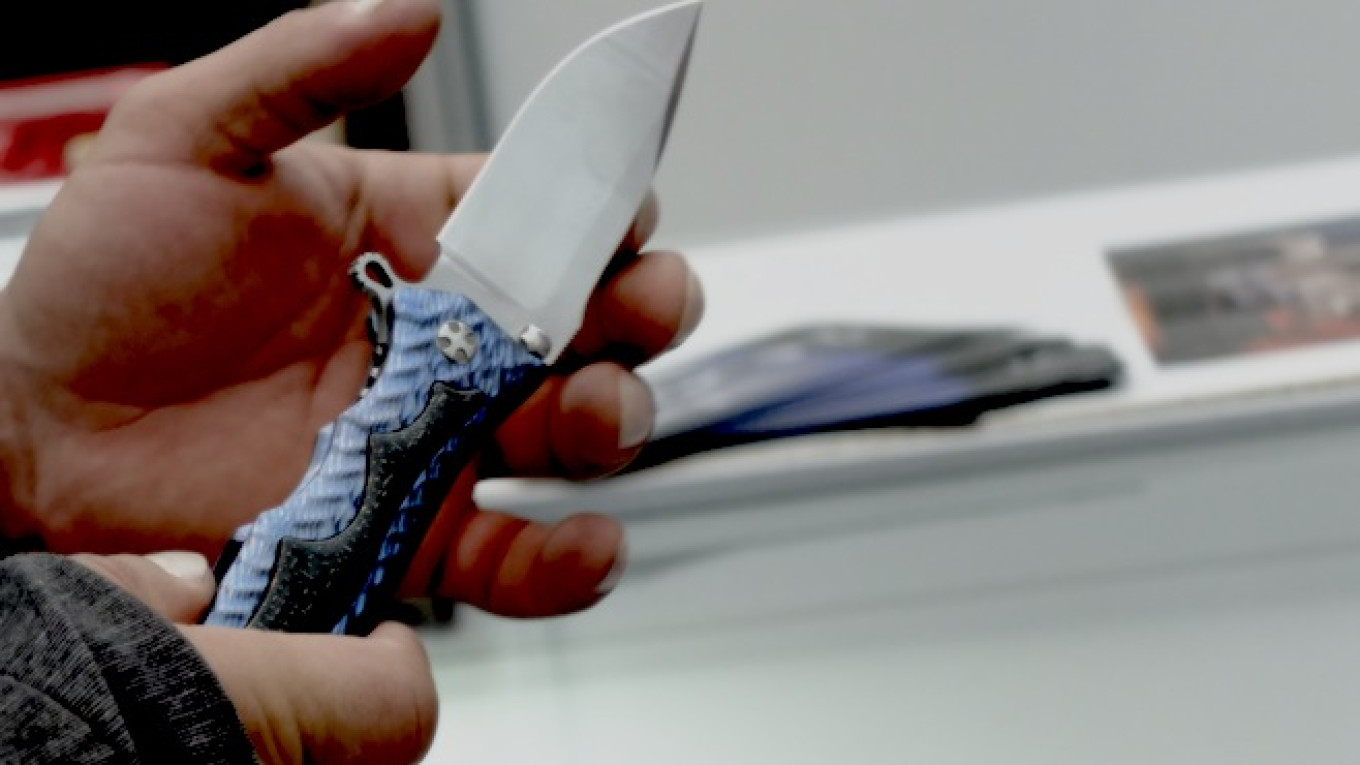An African doctor was stabbed in the stomach on the street in a town near Moscow for asking to be addressed by his name instead of a racial term, in one of many accounts of racially motivated violence against migrants in Russia, a rights activist said.
The eye surgeon from the war-ravaged Democratic Republic of Congo once fled his country for Russia in search of peace, but the level of racism has prompted him to seek refuge in a monastery, human rights activist Katya Bermant of the Children's Hearts charitable foundation said Tuesday on her Facebook page.
The man, identified by his first name Francis, left Congo for Russia after militants came to his hospital and "gave orders to kill the wounded," Bermant said. "He thought he was now in Europe, in safety."
He was wrong.
In the town of Podolsk, 15 kilometers south of Moscow, a local man came up to Francis, saying: "N-----, I want to take a picture with you," according to Bermant's account. The man used a familial Russian pronoun for "you" ("ty") — generally considered rude when speaking to strangers — according to the quote.
"Francis responded that he was not a "n-----," but black, and that his name was Francis. For this he got stabbed with a knife in the stomach," she said. "The man wasn't simply insulted by the response, he was striking to kill."
Racism
Reports of racially motivated violence in Russia have been multiple in recent years, though Moscow officials have instead focused on lambasting the U.S. for its handling of recent racially charged protests in Ferguson, Missouri, and on accusing Ukraine of "fascism."
At least 177 acts of violence against black people have been registered in Russia since 2008, six of them ending in death, according to Russia's SOVA Center for Information and Analysis.
In an article published by The Los Angeles Times last month, African migrants describe living in Russia as "hell on earth." The perpetrators of hate crimes often go unpunished.
In a recent example, a court in the city of Tomsk dismissed a case this fall against two Russian men accused of beating a black student from Ivory Coast on the university campus, ruling that the defendants deserved leniency because they had no prior criminal records, presented good character references and possessed established home addresses, according to the SOVA website.
Public Response
Bermant's account of the stabbing attack against Francis sparked outrage among one Russian Facebook user who complained to the social network's administrators that a photograph of the man lifting the hem of his shirt to show the long scar on his stomach was offensive, she said.
"Because here, on this photograph, is shown a naked body that insults him terribly," Bermant said. Except for the section of his stomach, Francis is fully clothed in the photo.
"In fact, this photograph shows something entirely different. It shows our joyless future, ladies and gentlemen," Bermant wrote. "Because people have turned into animals, and this is encouraged and not punished."
Other reactions to the account were mixed — ranging from expressions of outrage at the attack and support for African migrants, to derision of the supposedly excessive sensitivity of black people to terms referring to their skin color.
In an attempt to draw Russians' attention to the plight of African migrants in the country, major human rights organization Memorial and documentary photography center FotoDoc are organizing an exhibition titled "B&W" (black and white) to present "stories about the fates of migrants from Africa."
The exhibition, planned for next spring, appears to enjoy no government backing as organizers are crowd funding online to finance the project.
Contact the author at newsreporter@imedia.ru
A Message from The Moscow Times:
Dear readers,
We are facing unprecedented challenges. Russia's Prosecutor General's Office has designated The Moscow Times as an "undesirable" organization, criminalizing our work and putting our staff at risk of prosecution. This follows our earlier unjust labeling as a "foreign agent."
These actions are direct attempts to silence independent journalism in Russia. The authorities claim our work "discredits the decisions of the Russian leadership." We see things differently: we strive to provide accurate, unbiased reporting on Russia.
We, the journalists of The Moscow Times, refuse to be silenced. But to continue our work, we need your help.
Your support, no matter how small, makes a world of difference. If you can, please support us monthly starting from just $2. It's quick to set up, and every contribution makes a significant impact.
By supporting The Moscow Times, you're defending open, independent journalism in the face of repression. Thank you for standing with us.
Remind me later.


